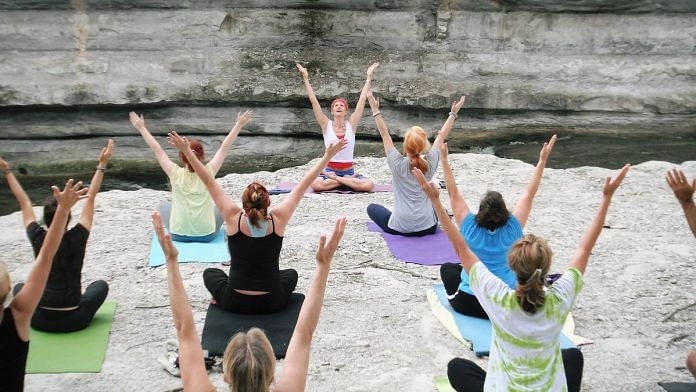The first Covid-19 lockdowns in March jolted a lot of us into new habits. Some of these changes were healthy; others, not so much. We started cooking more, which is generally healthier than eating in restaurants. We’re washing our hands a lot more. Some demographic groups, including older people, started exercising more.
But we’re also drinking more alcohol, especially if we’re women. We spend eight hours more a week watching TV. Lots of us are exercising less and spending more time doomscrolling. Pandemic anxiety has disturbed our sleep. Boredom has encouraged some of us to do a little too much impulsive online shopping. Mental health has suffered during this pandemic, and habits like these don’t alleviate the suffering. Over time, too much of any of these activities will leave a person (or her bank account) depleted.
Back in the spring, I interviewed Alice Boyes, author of “The Healthy Mind Toolkit,” on the then-emerging habit of doomscrolling. Because many social psychologists estimate that it takes about 40 days to form a new habit, I asked her if she thought the lockdown experiences would bring long-term changes in our behavior. At the time, Boyes said no — once the wider context changed, human behavior would also change again.
But here it is, nine months later, and our context hasn’t changed much at all. Nor does it seem likely to change over the next few months; most people won’t be able to get vaccinated until later in 2021. Stuck as we are, what can we do to get our pandemic proclivities back on track? I called Boyes back.
“The good-for-you habits that take a bit of self-control are going to be the ones we’re vulnerable to losing,” Boyes says. To push back on a habit you know you’d be better off without, “think about what need it is fulfilling for you,” says Boyes. For example, if that nightly martini is serving as the signal of the end of the workday, try doing something else to unwind. Replacing a bad habit with a different activity is also usually easier than simply trying to resist it.
There can be an element of problem-solving in trying to cultivate healthier habits, says Boyes. To make a good-for-you activity easier, eliminate the barriers to doing it. Get the gear you need; make sure it’s organized and accessible. Use the same logic to make unhealthy habits harder — move the booze to the basement, or log out of social media on your phone.
“It is easier to have an everyday habit than a twice-a-week habit,” says Boyes, but you don’t need to be rigid about it. If running every morning would give you knee pain, you can make your goal to move your body every morning. Maybe you run three days a week and the other four you stretch or do some bodyweight exercises. It’s all part of your “running routine” even if it isn’t all running. Try to do it at the same time every day.
She also emphasizes the importance of healthy mental habits right now, when it’s easy to think “I’m just trapped in my house” or “I can’t do any of the things I want to do.” It’s important to challenge these thoughts and remind ourselves of all the activities still available.
Forming a new habit “is a layered process,” Boyes explains. “One person’s light-bulb moment is another person’s eye roll.” If you’ve ever been accosted by a meditation or CrossFit enthusiast, for example, it’s probably because their new habit is helping them feel really good. Nonetheless, they had to come to it in their own time. One model of change suggests that people might mull their behavior for a year before taking even small steps toward acting differently. “There’s a sort of alchemy to when people end up changing habits, and what precipitates that.”
This is why it doesn’t help to beat yourself up if your attempts to form new habits are failing. And it’s OK to be sporadic about habit formation. You can pick up running for a few months and then drop it. You can declare a moratorium on online shopping until the end of the year, and then re-evaluate. Approach new habits as an experiment. Work with the rhythms of the season, the week, the day.
When you do finally change your behavior, Boyes says, it’s like discovering a different concept of yourself. Perhaps you’ve never thought of yourself as someone who likes cooking healthy meals. But … now you are? Weird. And exciting!
This sense of growth is what helps us break free of survival mode. Earlier in the pandemic, there was a backlash against the type-A sorts who claimed they were using this time to learn a new language or write a book. There’s no need to be that productive, but human beings don’t manage stress well when trapped in survival mode for this long, Boyes says. We need to find ways to thrive. –Bloomberg
Also read: People are eating healthier in pandemic, so avocados are selling like never before



